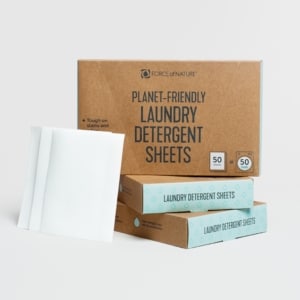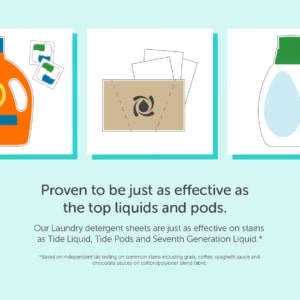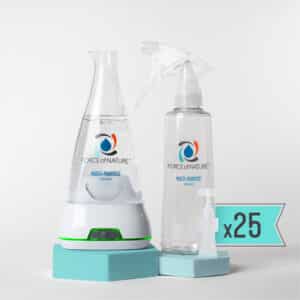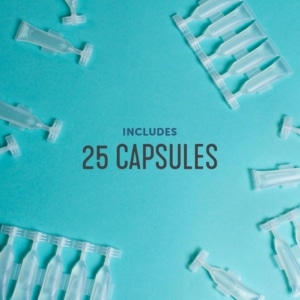
Is Hypochlorous Acid Really Safe For Skin?
If you’re a label-reader, ingredient-Googler, or just a mom trying to keep your family away from questionable chemicals, you’ve probably come across hypochlorous acid (HOCl). Maybe you’ve seen it in disinfectants, wound sprays – or even skincare products—and thought, “Wait, acid? On my skin?”
We get it. The name might sound intense, but this science-backed molecule is actually one of the safest and gentlest ingredients you can use on your skin. And yes, that includes baby skin, breakout-prone skin, and even post-procedure skin.
Hypochlorous acid has received a lot of attention recently for being an inexpensive, non-toxic and practical antimicrobial that is useful in a broad range of applications. Some of these applications include wound healing and eye products.
In this post, we’ll break down what makes hypochlorous acid so unique—and so safe—for your skin.
What is Hypochlorous Acid, Exactly?
Hypochlorous acid is a molecule your white blood cells produce naturally to fight off infection and support healing. As our white blood cells respond to pathogens, our immune systems generate HOCl to kill microorganisms and neutralize toxins and inflammation. In skincare, it’s harnessed in a super gentle form to help calm inflammation, reduce redness, and kill bacteria without disrupting your skin barrier.
Unlike many ingredients with the word “acid” in them (we’re looking at you, glycolic and salicylic), HOCl doesn’t exfoliate or sting. It’s non-toxic, non-irritating, and fragrance-free. You can even use it around the eyes, on cuts, and on the most sensitive areas of your skin when it’s at the proper concentration.
HOCl is used in veterinary medicine, ophthalmology, and wound care. How cool is that?
Learn more about what hypochlorous acid is and how it works.
What makes it so safe?
The reason hypochlorous acid is safe for skin comes down to two things:
Your body already makes it. That’s right – HOCl is part of your immune system’s natural defense system. Your body recognizes it and it’s incredibly well-tolerated.
It’s non-toxic and non-sensitizing. It doesn’t contain alcohol, synthetic fragrances, or other common irritants. That’s why it’s used in:
- Wound care products
- Eye care treatments
- Hospital-grade disinfectants
- Dermatology
What skin types and conditions can use HOCl safely?
Hypochlorous acid is safe for all skin types when used at the right concentration, but especially helpful for:
Sensitive skin – Because it’s gentle, fragrance-free, and non-drying
Eczema-prone skin – Helps calm and soothe skin
Post-procedure skin – Safe to use after treatments like microneedling, peels, or lasers
Baby and kid skin – Pediatricians and dermatologists trust it for use on delicate skin
Your Hypochlorous Acid Safety Questions, Answered
Is hypochlorous acid safe for everyday use?
Can I use it on broken or irritated skin?
Does hypochlorous acid sting or burn?
The Science Says: It’s Safe
Don’t just take our word for it. HOCl has been extensively studied and validated by regulatory bodies. It’s:
- EPA registered as a disinfectant (in household cleaning products)
- FDA approved for wound care
- FDA approved for eye care
It’s even being used in dermatology applications, including acne, eczema, rosacea, and psoriasis.
Why choose Force of Nature?
When it comes to household cleaning, Force of Nature allows you to make hypochlorous acid in a small appliance on your countertop. It uses electricity to convert tap water, plus a tiny capsule of salt, water & vinegar, into a multi-surface cleaner and EPA registered disinfectant. That means no toxic cleaning chemicals, single-use plastic bottles or toxic fumes or residues.
We’re proud to have earned the highest possible rating by the Mayo Clinic’s SkinSAFE allergy rating system, and we’re the only disinfectant and cleaner to earn the Clean Label Project Purity Award and the National Eczema Association Seal of Acceptance.
Learn how Force of Nature works or shop our Starter Kits & Value Bundles to try it for yourself.



